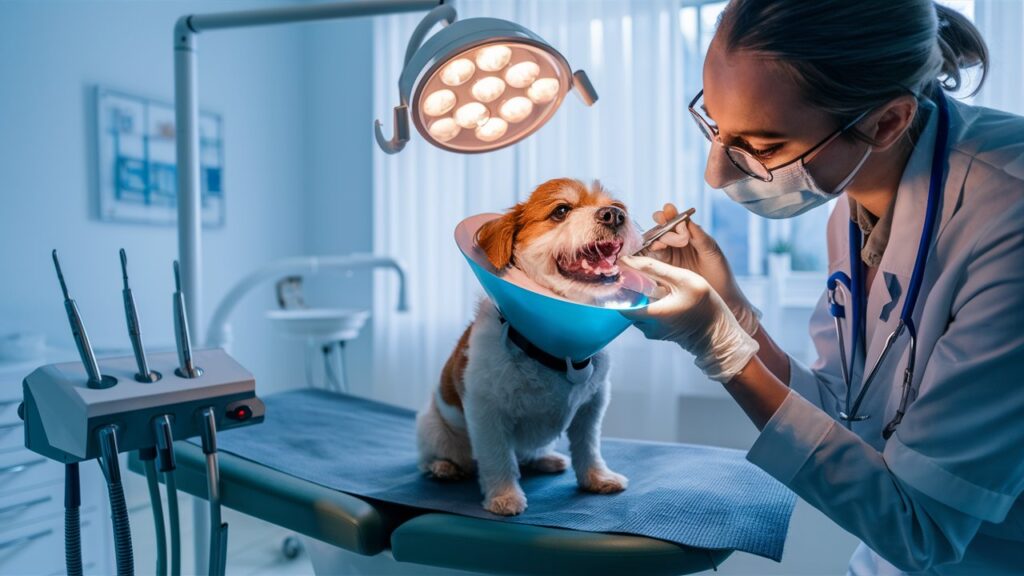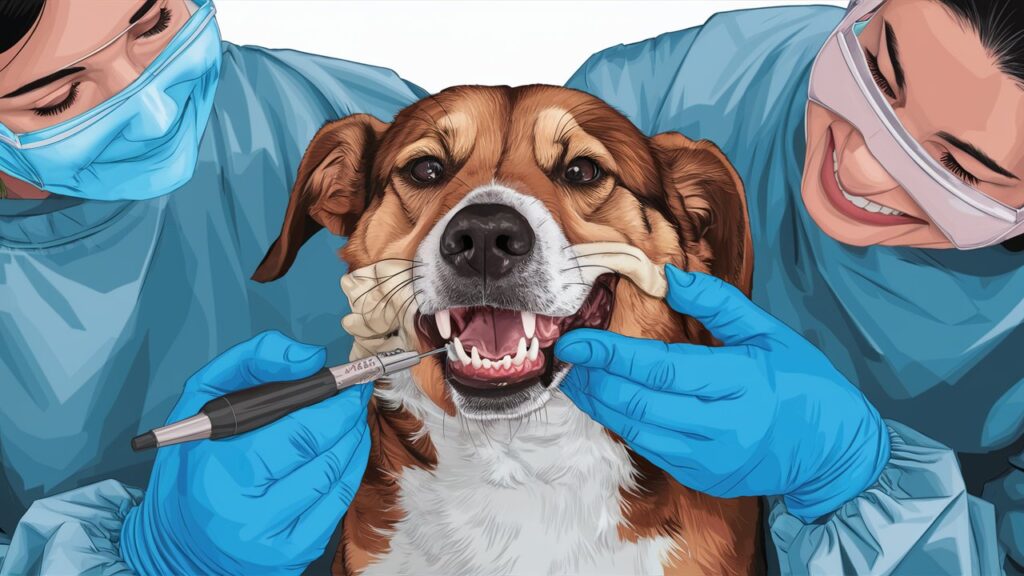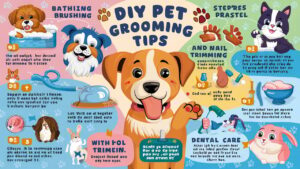Dog dental care Ensure your dog’s health with our top tips and products for effective dental care, promoting fresh breath and strong teeth.

- Introduction to Dog Dental Care
- Importance of Dental Health for Dogs
- Common Dental Issues in Dogs
- Understanding Dog Dental Anatomy
- Structure of a Dog’s Mouth
- Differences Between Puppy and Adult Dog Teeth
- Signs of Dental Problems in Dogs
- Bad Breath
- Excessive Drooling
- Difficulty Eating
- The Importance of Regular Dental Check-ups
- What to Expect During a Dental Check-up
- How Often Should Dogs Get Dental Check-ups
- Home Dental Care for Dogs
- Brushing Your Dog’s Teeth
- Choosing the Right Toothbrush and Toothpaste
- Step-by-Step Guide to Brushing
- Dental Chews and Toys
- Benefits of Dental Chews
- Recommended Dental Toys
- Brushing Your Dog’s Teeth
- Professional Dental Treatments
- Dental Cleaning Procedures
- When to Consider Dental Surgery
- Diet and Dental Health
- Foods That Promote Dental Health
- Foods to Avoid
- Preventing Dental Disease in Dogs
- Regular Home Care Routines
- Recognizing Early Signs of Dental Disease
- Natural Remedies for Dog Dental Care
- Safe Herbal Options
- Homemade Dental Treats
- Addressing Specific Dental Issues
- Plaque and Tartar Buildup
- Gingivitis and Periodontal Disease
- Tooth Fractures and Loss
- The Role of Breed in Dental Health
- Breeds Prone to Dental Issues
- Special Care Tips for Different Breeds
- Puppy Dental Care
- Teething in Puppies
- Establishing Good Dental Habits Early
- Senior Dog Dental Care
- Common Dental Issues in Older Dogs
- Special Considerations for Senior Dogs
- FAQs About Dog Dental Care
- How often should I brush my dog’s teeth?
- Can dental chews replace brushing?
- What are the signs of dental pain in dogs?
- Is anesthesia safe for dog dental cleanings?
- How can I make my dog more comfortable during tooth brushing?
- Conclusion
- Recap of Key Points
- Encouragement to Prioritize Dog Dental Health
Dog Dental Care
Introduction to Dog Dental Care
Taking care of your dog’s teeth is just as important as taking care of your own. Good dental hygiene can prevent a variety of health issues and ensure that your furry friend remains happy and healthy. But why is dental health so crucial for dogs?
Importance of Dental Health for Dogs
Dental health impacts more than just a dog’s mouth. Poor dental hygiene can lead to serious health problems, including heart, liver, and kidney disease. Bacteria from the mouth can enter the bloodstream, causing infections that affect vital organs. Regular dental care helps prevent these complications and keeps your dog’s breath fresh!
Common Dental Issues in Dogs
Dogs can suffer from a variety of dental problems, including plaque and tartar buildup, gingivitis, and periodontal disease. These issues can cause pain, tooth loss, and even systemic infections if left untreated. Recognizing and addressing dental issues early can save your dog from discomfort and more serious health problems down the line.
Understanding Dog Dental Anatomy
To effectively care for your dog’s teeth, it’s helpful to understand the basics of their dental anatomy.
Structure of a Dog’s Mouth
Dogs have 42 adult teeth, each serving a specific purpose. Their teeth include incisors for nibbling, canines for tearing, premolars for shearing, and molars for grinding. The structure of a dog’s mouth is designed to handle a diet that requires tearing and chewing tough materials.
Differences Between Puppy and Adult Dog Teeth
Puppies have 28 deciduous teeth, commonly known as baby teeth. These teeth start to emerge at about three weeks of age and are eventually replaced by permanent teeth between four to six months. It’s crucial to start dental care early to ensure that their adult teeth come in healthy and strong.
Signs of Dental Problems in Dogs
Knowing the signs of dental issues can help you take action before the problem becomes severe.
Bad Breath
While dog breath isn’t expected to be minty fresh, excessively bad breath can indicate dental disease. Foul odor is often a sign of bacteria buildup and should be checked by a vet.
Excessive Drooling
If your dog suddenly starts drooling more than usual, it could be due to dental pain or an oral infection. Excessive drooling often accompanies other symptoms like bad breath and difficulty eating.
Difficulty Eating
Dental pain can make eating uncomfortable for dogs. If your dog is dropping food, chewing on one side, or refusing to eat, a dental issue might be the culprit.
The Importance of Regular Dental Check-ups
Just like humans, dogs benefit from regular dental check-ups to maintain their oral health.
What to Expect During a Dental Check-up
During a dental check-up, your vet will examine your dog’s mouth, teeth, and gums for signs of disease or infection. They may also take X-rays to check for issues below the gum line and perform a professional cleaning to remove plaque and tartar.
How Often Should Dogs Get Dental Check-ups
It’s generally recommended that dogs have a dental check-up once a year. However, dogs prone to dental issues might need more frequent visits. Your vet can provide guidance based on your dog’s specific needs.
Home Dental Care for Dogs
Regular home care is essential for maintaining your dog’s dental health between vet visits.
Brushing Your Dog’s Teeth
Brushing is the most effective way to remove plaque and prevent tartar buildup. Here’s how to do it right.
Choosing the Right Toothbrush and Toothpaste
Use a toothbrush designed for dogs, which typically has softer bristles and a shape that fits their mouth. Never use human toothpaste, as it can be toxic to dogs. Dog-friendly toothpaste comes in flavors like poultry and peanut butter, which dogs usually enjoy.
Step-by-Step Guide to Brushing
- Get your dog comfortable: Let your dog sniff and lick the toothbrush and toothpaste to get familiar with them.
- Lift their lip: Gently lift your dog’s lip to expose their teeth.
- Brush in circular motions: Focus on the gum line, where plaque tends to accumulate.
- Reward and praise: Offer treats and praise to make the experience positive.
Dental Chews and Toys
Dental chews and toys can supplement brushing by helping to clean teeth and massage gums.
Benefits of Dental Chews
Dental chews are designed to reduce plaque and tartar buildup. Chewing stimulates saliva production, which naturally cleanses the mouth and helps prevent bacterial growth.
Recommended Dental Toys
Look for toys made of durable rubber or nylon that can withstand vigorous chewing. Toys with textured surfaces are particularly good at cleaning teeth and gums.

Professional Dental Treatments
Sometimes, professional intervention is necessary to maintain your dog’s dental health.
Dental Cleaning Procedures
A professional dental cleaning involves scaling to remove plaque and tartar, polishing the teeth to smooth out any rough spots, and possibly taking X-rays to assess below the gum line.
When to Consider Dental Surgery
In severe cases of dental disease, surgery might be needed to remove damaged teeth or treat abscesses. Your vet will discuss the best course of action if your dog’s dental health requires it.
Diet and Dental Health
What your dog eats can significantly impact their dental health.
Foods That Promote Dental Health
Dry kibble is generally better for dental health than wet food, as the crunching action helps clean teeth. Some foods are specially formulated to reduce plaque and tartar. Additionally, raw bones can provide natural cleaning benefits.
Foods to Avoid
Avoid feeding your dog sugary treats and table scraps, which can contribute to plaque buildup and dental disease. Hard items like bones or antlers can cause tooth fractures.
Preventing Dental Disease in Dogs
Prevention is always better than cure when it comes to dental health.
Regular Home Care Routines
Establish a routine that includes daily brushing, providing dental chews, and regular vet check-ups. Consistency is key to preventing dental issues.
Recognizing Early Signs of Dental Disease
Early detection is crucial. Look out for signs like bad breath, inflamed gums, and changes in eating habits. Catching problems early makes them easier to treat.
Natural Remedies for Dog Dental Care
Some natural remedies can help maintain your dog’s dental health.
Safe Herbal Options
Herbs like parsley and mint can freshen breath. Coconut oil has antibacterial properties and can be used as a toothpaste alternative.
Homemade Dental Treats
You can make dental treats at home using ingredients like coconut oil, parsley, and turmeric. These treats can help keep your dog’s teeth clean and breath fresh.
Addressing Specific Dental Issues
Certain dental issues require specific treatments.
Plaque and Tartar Buildup
Regular brushing and dental chews are effective at reducing plaque and tartar. In more severe cases, a professional cleaning may be necessary.
Gingivitis and Periodontal Disease
These conditions require veterinary attention. Treatment may include antibiotics, professional cleaning, and in severe cases, surgery.
Tooth Fractures and Loss
Fractured or lost teeth can be painful and require prompt veterinary care. Treatment might involve extraction or, in some cases, restorative procedures.
The Role of Breed in Dental Health
Some breeds are more prone to dental issues than others.
Breeds Prone to Dental Issues
Small breeds, such as Chihuahuas and Yorkshire Terriers, often have crowded teeth, which can lead to dental problems. Breeds with short snouts, like Bulldogs and Pugs, are also at higher risk.
Special Care Tips for Different Breeds
Tailor your dental care routine to your dog’s breed-specific needs. For example, small breeds might benefit from more frequent brushing, while dogs with short snouts may need special dental toys to help keep their teeth clean.
Puppy Dental Care
Starting dental care early sets the stage for a lifetime of healthy teeth.
Teething in Puppies
Puppies begin teething at around three weeks and continue until about six months. During this time, provide teething toys to help soothe their gums and keep their teeth healthy.
Establishing Good Dental Habits Early
Get your puppy used to having their mouth touched and teeth brushed from a young age. Use positive reinforcement to make the experience enjoyable for them.
Senior Dog Dental Care
Older dogs have specific dental needs that require special attention.
Common Dental Issues in Older Dogs
Senior dogs are more prone to dental disease, tooth loss, and oral tumors. Regular dental check-ups are essential to catch and treat these issues early.
Special Considerations for Senior Dogs
Senior dogs may need softer foods if they have missing teeth or gum issues. Ensure they get regular dental cleanings and adjust their care routine as needed to maintain their oral health.
FAQs About Dog Dental Care
How often should I brush my dog’s teeth?
It’s best to brush your dog’s teeth daily. If that’s not possible, aim for at least three times a week to help prevent plaque buildup and dental disease.
Can dental chews replace brushing?
Dental chews can supplement brushing but shouldn’t replace it. Brushing is the most effective way to remove plaque and prevent tartar buildup.
What are the signs of dental pain in dogs?
Signs of dental pain include reluctance to eat, pawing at the mouth, drooling, and changes in behavior. If you notice any of these signs, consult your vet.
Is anesthesia safe for dog dental cleanings?
Anesthesia is generally safe for dogs and necessary for thorough dental cleanings. Your vet will perform pre-anesthetic tests to ensure your dog’s safety.

How can I make my dog more comfortable during tooth brushing?
Use a toothpaste flavor your dog likes, start slowly, and gradually increase the brushing time. Reward your dog with treats and praise to create a positive experience.









